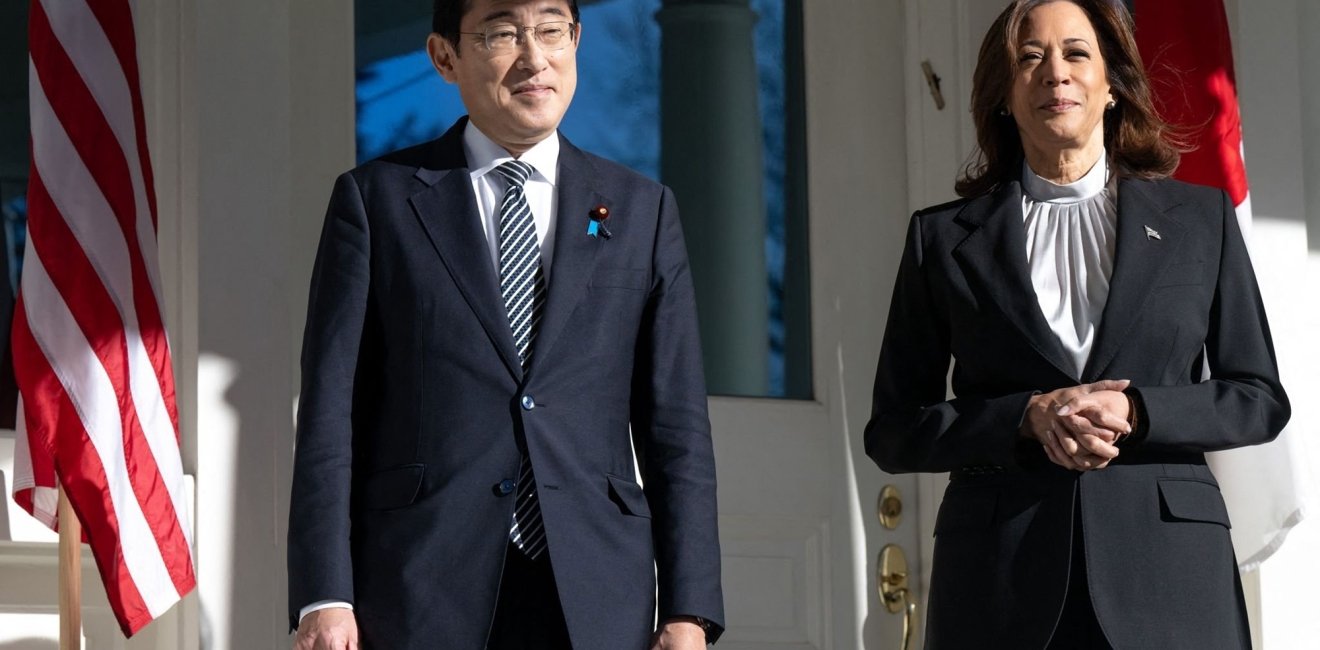
A blog of the Indo-Pacific Program
It was no accident that Japanese Prime Minister Fumio Kishida concluded his whirlwind tour of five countries in as many days in the United States. As Japan prepares to host the G7 meeting in May, Kishida’s tour of France, Italy, Britain, and Canada before reaching Washington was ostensibly about discussing key issues to be addressed at the upcoming summit, focusing in particular about the rising threats to global stability amid the growing challenge China poses militarily and economically. But by making the White House the final stop of his world tour this past week, the prime minister also acted as a sounding board and an envoy of global opinion to President Biden. So while Kishida’s priority was to ensure a consensus amongst the world’s industrialized countries that the threats Japan is facing are shared by all, it has also opened the door for Japan to act as a consensus builder in dealing with the United States.
Tokyo unveiled its most ambitious defense strategy since the end of World War II last December as it prepares to double its military spending, enhance its missile capabilities, and expand into cybersecurity as well as other non-traditional defense realms. In meetings with his European and North American counterparts, Kishida’s priority had been to ensure support for Japan to beef up its military stance. Washington has certainly welcomed Tokyo’s reinvigorated efforts to bolster its defense capabilities in light of the rapidly changing security risks facing not only Japan, but the Indo-Pacific region at large. While Japan’s geographic proximity and its interconnectivity with the Chinese economy means that Tokyo and Washington’s perceptions of Beijing cannot be completely the same, the two countries are more closely aligned now in assessing the China threat than ever before. For Kishida and Biden to reaffirm the bilateral alliance and for the United States to welcome a more muscular Japan is hardly surprising, especially since it would ostensibly allow Washington to lean more on Tokyo’s military capabilities in the Indo-Pacific.
At the same time, Kishida demonstrated Japan’s potential role as an envoy of global consensus at a time when there is growing protectionism and a rise in economic nationalism. In contrast to security policy whereby concerns about Chinese aggressions are broadly shared by industrialized countries, unity over economic policy in dealing with China’s coercive actions has yet to emerge. In fact, the fear is that the opposite may become true, as countries adopt industrial policy and protectionist measures in response to the disruptions caused by the pandemic as well as China weaponizing its economic standing.
In short, developing economic policies that meet national security needs as well as the needs of businesses will be no easy task, with no quick fix.
The fact that the United States is adopting industrial policy to further its technological leadership has been particularly worrisome, even to some of Washington’s long-standing partner countries including Japan. Following the Biden-Kishida summit meeting, the two countries held a vice-ministerial meeting to discuss economic issues and outlined their shared concerns about supply chain resilience as well as economic coercion. Yet when it comes to developing and profiting from advanced technologies, Japan and the United States, as well as Europe, South Korea, and others remain competitors, and all need to heed to the needs of the private sector. In short, developing economic policies that meet national security needs as well as the needs of businesses will be no easy task, with no quick fix. Indeed, developing technology innovation policy that is interoperable across borders will be one of the biggest trade issues moving forward.
As countries seek to redefine supply chain resiliency, the need to keep protectionism in check and to encourage efficiencies amongst trusted partners, Japan’s role as an honest broker with strong ties to the United States and its ability to work closely together with European countries will be invaluable. The challenge ahead will be whether coordinated efforts to ensure economic security amongst like-minded countries can actually make progress as has been the case in military security. Tokyo’s willingness to listen and coordinate may well be the key in meeting the trade challenges ahead.
Follow Shihoko Goto, deputy director for geoeconomics and senior associate for Northeast Asia, on Twitter @GotoEastAsia.
The views expressed are the author's alone, and do not represent the views of the U.S. Government or the Wilson Center. Copyright 2020, Asia Program. All rights reserved.
Author


Indo-Pacific Program
The Indo-Pacific Program promotes policy debate and intellectual discussions on US interests in the Asia-Pacific as well as political, economic, security, and social issues relating to the world’s most populous and economically dynamic region. Read more





